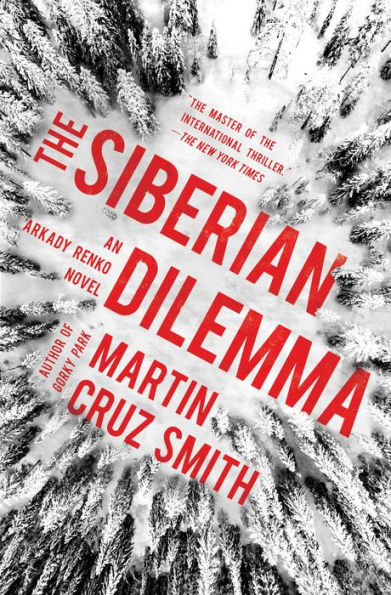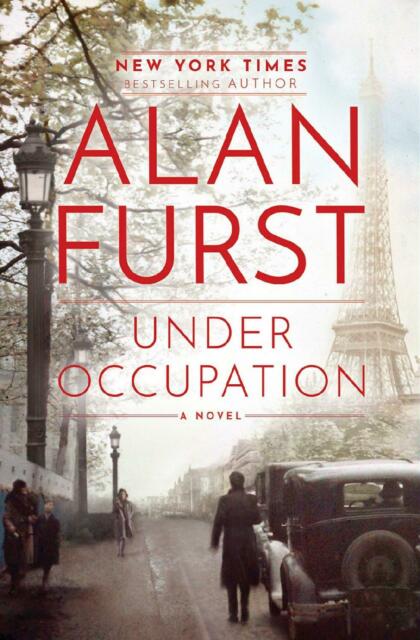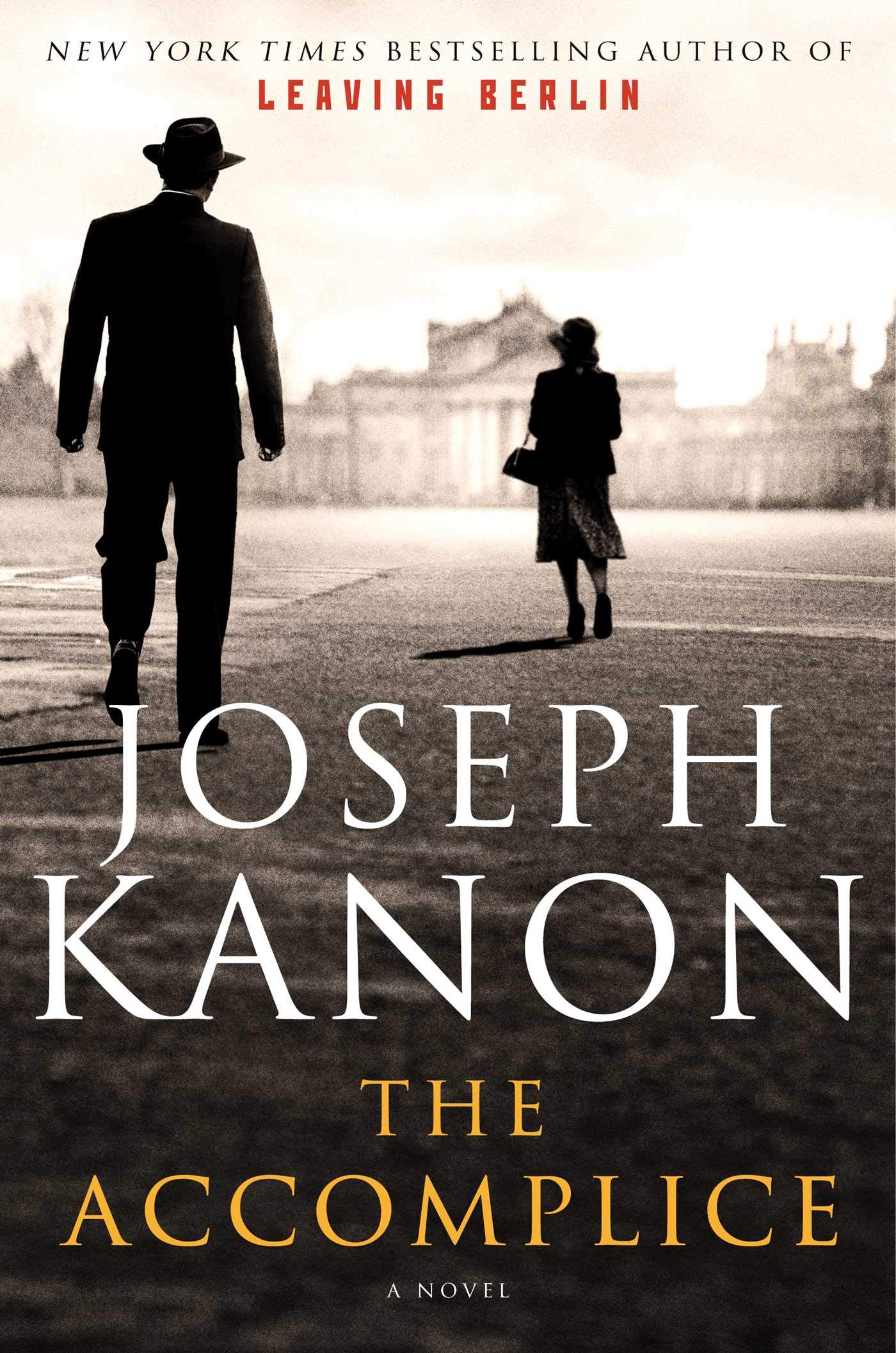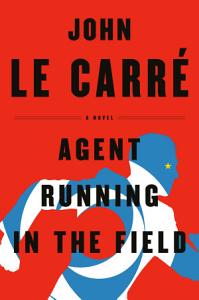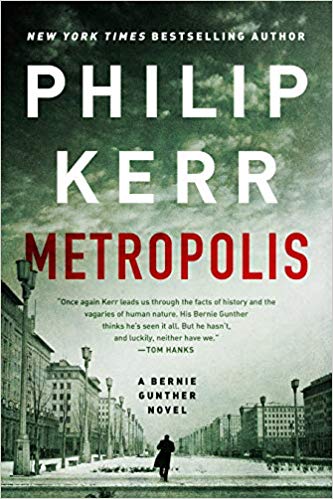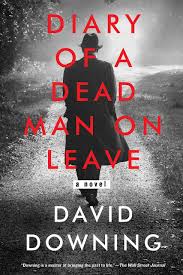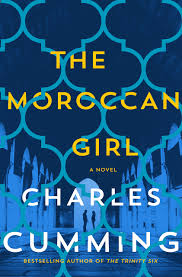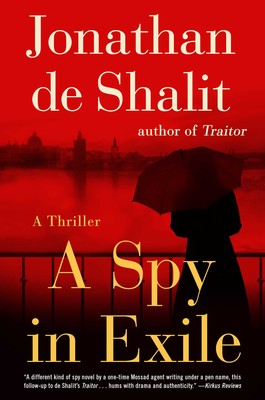Already 2019 is shaping up to be a great year for espionage novels, with fiction from leading authors like John Le Carré, Charles Cumming, Joseph Kanon, Alan Furst, David Downing, and the late Philip Kerr in the offing.
I’ll list my top picks as they are published throughout the year. Please note that I’m partial to historical spy thrillers with a literary flair; the novels I’ve selected reflect that bias.
The Siberian Dilemma by Martin Cruz Smith
Martin Cruz Smith’s last novel featuring wise-guy Moscow investigator Arkady Renko, Tatiana, appeared in 2013. Now, Arkady is back in Smith’s ninth book in series, The Siberian Dilemma, and the cynical detective must once again operate in Vladimir Putin’s autocratic New Russia, where corruption and political violence go hand-in-hand and the rich bend the rule of law to their benefit.
The novel sends Arkady to the far reaches of Russia, to Irkutsk, in search of his sometime lover, journalist Tatiana Petrovna. She is covering the nascent political campaign of Mikhail Kuznetsov, an oil oligarch and potential challenger to Putin, and that puts her in harm’s way. As he seeks to protect her, Arkady allies himself with a local Buryat shaman, Rinchin Bolot, and Aba Makhmud, a young Chechen falsely accused of terrorism by Arkady’s boss, the corrupt prosecutor Zurin.
The Siberian Dilemma becomes more of a traditional detective story when Kuznetsov’s wealthy business partner and close friend, Boris Benz, is murdered, and Arkady realizes he may be framed for the killing. Driven to solve the crime, Arkady finds that the clues lead him to the forbidding and desolate wilderness around frozen Lake Baikal. There, he confronts deadly cold, wild bears, and hardened criminals, and faces the Siberian dilemma of the title—where you are offered only bad choices. And it’s hard not to conclude that in today’s Russia those, sadly, are the only choices available.
Under Occupation by Alan Furst
In The World At Night, Alan Furst’s 2002 novel, a French screenwriter–a colorful character named Fischfang–claims he doesn’t have “a real belief in plots.” Instead, he maintains: “Life wasn’t this, and therefore that, and so, of course, the other. It didn’t work that way. Life was this, and the something, and then something else, and then a kick in the ass from nowhere.” That belief in the randomness of life is mirrored in many of Furst’s recent novels about Paris under Nazi rule. It informs Under Occupation, his latest, and those readers expecting a traditional linear plot-line will instead find a series of lightly-linked episodic stories primarily featuring Paul Ricard, an author of detective novels drawn into the Resistance by accident.
The book begins in 1942; in short order, Ricard finds himself working for British intelligence, gathering information, assisting in sabotage against the Germans, and assessing an escape route for downed Allied aviators. He is aided by Kasia, a Polish woman who is part of the Paris demi-monde. Ricard’s assignments become increasingly dangerous, including a risky mission to the German port city of Kiel, where he is asked to spy on the naval yards in preparation for a British bombing raid–and discovers unanticipated complications.
Under Occupation is not without a healthy dose of romance (no surprise in a Furst novel); Ricard attracts more than his share of female attention, including from his mysterious handler, Leila. While at times Furst asks the reader to suspend belief–the Nazis close in on Ricard numerous times only to have him slip away (a modern-day Scarlet Pimpernel?)–Under Occupation delivers equal doses of history and entertainment.
The Accomplice by Joseph Kanon
In 1960, Israeli agents kidnapped the Nazi war criminal Adolf Eichmann in a daring operation carried out in broad daylight on the streets of Buenos Aries. While the government of Argentina protested the capture as a violation of its sovereignty, the Israelis refused to hand over Eichmann. He was brought to Tel Aviv, where he was tried, convicted, and executed for his role as a leading architect of the Holocaust and for his crimes against humanity. There were still, however, many former Nazis living in South America who had escaped from post-war Europe through the aptly-named ratline.
Joseph Kanon’s latest historical thriller, The Accomplice, takes the reader to 1962 Buenos Aires where his protagonist, an American CIA officer named Aaron Wiley, is hunting Otto Schramm, a physician involved in the horrific experimentation that took place on prisoners in Auschwitz. Wiley isn’t acting on orders from the CIA—this pursuit is personal, for Schramm has been complicit in the damage done to Wiley’s extended family in the death camp.
As with all of Kanon’s novels, The Accomplice addresses several weighty questions: Does justice require a public trial and conviction? What should be the punishment for unspeakable crimes?Death? Life imprisonment? When the authorities refuse to act, is there a moral duty to pursue justice, even if it means operating outside of the law?
Kanon paints a dark, complicated picture in the novel. Wiley finds few allies in his quest to bring Schramm to justice. There’s little appetite for war crimes trials in West Germany. The Mossad is wary of another international incident. Many Argentine officials are sympathetic to the Nazis. And the CIA sees Schramm as a potential informer on the Peronists, who are now out of power but a threat to return and .
There are personal complications as well. Wiley finds himself attracted to Schramm’s beautiful but emotionally bruised daughter. Caught between her loyalty to her father and her growing realization of the extent and gravity of Otto Schramm’s crimes, she is the most intriguing and memorable character we encounter in The Accomplice.
Agent Running in the Field by John le Carré
David John Moore Cornwell, the Englishman who writes under the pen name of John le Carré, has been outspoken in his disdain for Brexit, for Donald Trump, and for the rising populist and nationalist tide in Europe. Nor does he want to push the re-set button for Vladimir Putin, either.
Cornwell/le Carré injects these strongly-held political views into Agent Running in the Field, his latest spy thriller, and despite some polished writing and interesting characters, the result is a somewhat muddled tale. Le Carré, known for his left-of-center antipathy for the West’s intelligence agencies (MI6 and the CIA), has been left in an awkward place. Those very same agencies are now seen by the Left as a bulwark against Trump’s erratic foreign policy and authoritarian tendencies. After all, where did the Steele Dossier come from? And the investigation of Russian influence during the 2016 presidential campaign? Further, it was a CIA officer who blew the whistle about President Trump’s alleged improper pressure on the Ukrainian president during a White House phone call. The Resistance to Trump (and to Brexit) is centered in what populists have derided as the Deep State.
What makes Agent Running in the Field intriguing, in a way, is le Carré’s struggle to make sense of this new topsy-turvy environment, and to balance his long-held dislike of British elites with the reality that its adversaries are also his. That leads to a somewhat jumbled focus for the novel. Le Carré centers his latest tale around three characters: his protagonist, Nat, a middle-aged Secret Intelligence Service officer nearing the end of his career, and two younger characters, Florence (an idealistic MI6 officer) and Ed, whose political views are earnest but extreme. When Florence militates for a counterintelligence operation against a Ukrainian oligarch with ties to Moscow Center, Nat encourages her—only to discover that Russian influence over the Establishment is greater than he realized.
Agent Running in the Field isn’t in the same category as the George Smiley series or even more recent novels like The Constant Gardener or Our Kind of Traitor, but le Carré nonetheless knows both how to tell a story, and how to hook the reader.
Metropolis by Philip Kerr
Before Philip Kerr’s death in 2018, he completed his final novel, Metropolis. One more time it features his wise-cracking hero/antihero, Berlin detective Bernie Gunther. The book tells an origin story—Bernie’s first days on the city’s Murder Commission in 1928. This is a younger, more restrained Gunther, one who hopes to learn the ropes of his new job and leave behind the lingering bad memories of his time as a soldier in the Great War.
Kerr paints a vivid portrait of Berlin in the late 1920s, a mix of Babylonian excess, artistic ferment, political upheaval, and grinding poverty. As Bernie Gunther is plunged into two investigations—of a killer who has been scalping prostitutes, and of a murderer executing crippled veterans begging on the city’s streets—Kerr takes us on a tour of Berlin after dark, its sex clubs and dive bars, its shadowy underworld controlled by ruthless gangsters. And lurking in the background is the emerging menace of Adolf Hitler and his Nazi thugs, battling with Communist street gangs and seeking to undermine the Weimar Republic.
Despite its detailing of some grisly murders, Metropolis is a more hopeful book than many of Kerr’s later Bernie Gunther novels. Set before the Third Reich, the Berliners we meet accept traditional notions of right-and-wrong—there are worrying signs, but for now, the moral center has held. Ahead, the horrors of National Socialism.
Philip Kerr’s fourteen Bernie Gunther novels offer more than noir entertainment: they bring to life the tortured history of Europe from the 1920s through the late 1950s, a history of the immense harm and damage caused by totalitarianism. While his thrillers featured more than their fair share of black humor and cynicism, it was always clear that Kerr believed fiercely in the quest for decency and justice. He, and Bernie Gunther, will be missed.
Diary of a Dead Man on Leave by David Downing
Writers have their fascinations. For historical novelist David Downing, one of them has been how left-wing Germans—socialists, Communists, social democrats—coped with life in the Third Reich. Many of them had battled the Nazis in the 1920s; millions had voted against Hitler and his National Socialists. What was it like for them as the Nazis tightened the screws? It’s a theme Downing addressed in his Jack Russell novels set in Berlin, and it’s one he has returned to in Diary of a Dead Man on Leave.
The novel’s title comes from a doomed German radical facing trial in 1919: “We Communists are all dead men on leave.” Downing’s protagonist, a man who calls himself Josef Hofman, is one of those dead men on leave, a veteran agent of the Communist International, the Kremlin’s organization responsible for promoting world revolution. Sent to the city of Hamm in northern Germany in 1938, Josef has been ordered to organize a resistance cell, recruiting ex-Communist Party members from among his co-workers at the railway yard. Josef has served the Comintern in Russia, Germany, Bulgaria, China, the United States, and Latin America. He is committed to the revolutionary cause, recognizing that his life hangs by a thread—if betrayed to the Gestapo he will be tortured and killed. There is another danger in his line of work: in a time of suspicion and of purges, a summons to Moscow by his superiors can end with a bullet to the back of the head.
As he grows close to the people he meets in Hamm, Josef begins to question his purpose. He begins a diary (a risky and foolish act). He knows that he should resist any emotional entanglements, but he can’t help himself. By growing close to the widow running his boarding house, her twelve-year-old son, and their circle of friends, Josef realizes that he may be jeopardizing his mission and his good standing in Moscow.
Downing recognizes that his sympathetic portrait of a Comintern operative, a man dedicated to advancing a totalitarian ideology, a man with blood on his hands, may not sit well with every reader. Yet it is a measure of Downing’s considerable imaginative talent that he helps us see how it is possible for a decent man to serve an indecent cause.
The Moroccan Girl by Charles Cumming
Charles Cumming’s clever new novel is, well, quite meta—The Moroccan Girl is a spy thriller featuring a protagonist, British author Kit Carradine, who writes spy thrillers. As the novel begins, Carradine is about to leave London, headed to a literary festival in Marrakesh, when he is approached by an MI6 officer, Robert Mantis, asking for his help. A covert agent of the Secret Service may be attending the festival; she is in trouble, hunted by the opposition. Will Kit pass along a sealed package to this mysterious woman? Kit is intrigued by the chance to experience first hand the reality of the world of espionage. (The idea of becoming a “writer-spy” appeals to him.) Moreover, he’s bored and welcomes a break in his routine, closeted in his London flat cranking out his would-be bestsellers.
It’s not long before Kit discovers that the “Moroccan girl” he has been tasked with locating is actually Lara Bartok, a member of the violent Antifa group Resurrection, and a fugitive from justice. Resurrection has been attacking right-wing populists in Europe and the U.S. through kidnappings, bombings, and assassinations of politicians and journalists. Described as a latter-day Ulrike Meinhof, the West German radical and terrorist, Lara had been the girlfriend of Resurrection’s leader, Ivan Simakov, but now she’s renounced the violence (or has she?). Lara’s alluring, street-smart, and has a magnetic appeal for men. When Kit meets her in Marrakesh, he finds himself quickly over his head—Russian and American intelligence agents are hunting Lara, intent on retribution. When Kit decides to help her evade her pursuers, the novel picks up speed and keeps the reader absorbed until its resolution.
The Moroccan Girl asks an ingenious question. How would a gifted and imaginative storyteller, who has spent years researching spy tradecraft, fare when suddenly thrust into the secret world? Could the amateur outwit the professionals? Could he stay one step ahead? Cumming has fashioned an intriguing and amusing story built around answering those questions.
A Spy in Exile by Jonathan de Shalit
Ya’ara Stein, a thirty-something Mossad-trained operative, is the protagonist of Jonathan de Shalit’s second spy thriller, A Spy in Exile. (De Shalit is the pseudonym of a retired Israeli intelligence officer with a literary bent). Ya’ara has been recruited by Israel’s prime minister to form a secret unit to battle Islamist-affiliated terror cells in Europe. This elite unit, like the one established after the Munich Summer Olympics massacre in 1972 to hunt down and execute Palestinian terrorists, is designed to administer rough justice to Israel’s enemies while ignoring national boundaries and international law.
De Shalit has produced a well-crafted novel, and he’s created an intriguing character in Ya’ara. Sophisticated, intelligent, unbending, she cooly plans daring, extra-judicial killings and doesn’t shy away from violence action herself. While some of the members of her team express qualms about the vengeance Ya’ara and the unit pursue, she rationalizes it as necessary for Israel’s survival. She believes, as does the (fictional) prime minister that “rampant Islamic terror could only be defeated by means of a hard-fought and bloody war, from close quarters, with continuing and relentless violence….” It’s a grim picture, one with little hope. While many Israelis might endorse these “long war” sentiments, it’s more problematic for European and American readers.
In contrast, the hit Israeli television series “Fauda” has attempted to humanize the Palestinians of the West Bank and their conflict with their occupiers. The recent screen adaption of Little Drummer Girl also offered a more nuanced view of the situation (even more sympathetic to the plight of the Palestinians than the novel by John Le Carré). If de Shalit continues his series, it will be interesting to see whether future novels reflect the changing political landscape in Israel and the West, and the desire for compromise and a lasting peace.
Here are past lists of top spy thrillers. You can click for:
Ten classic British spy novels
Copyright © 2019 Jefferson Flanders
All rights reserved
